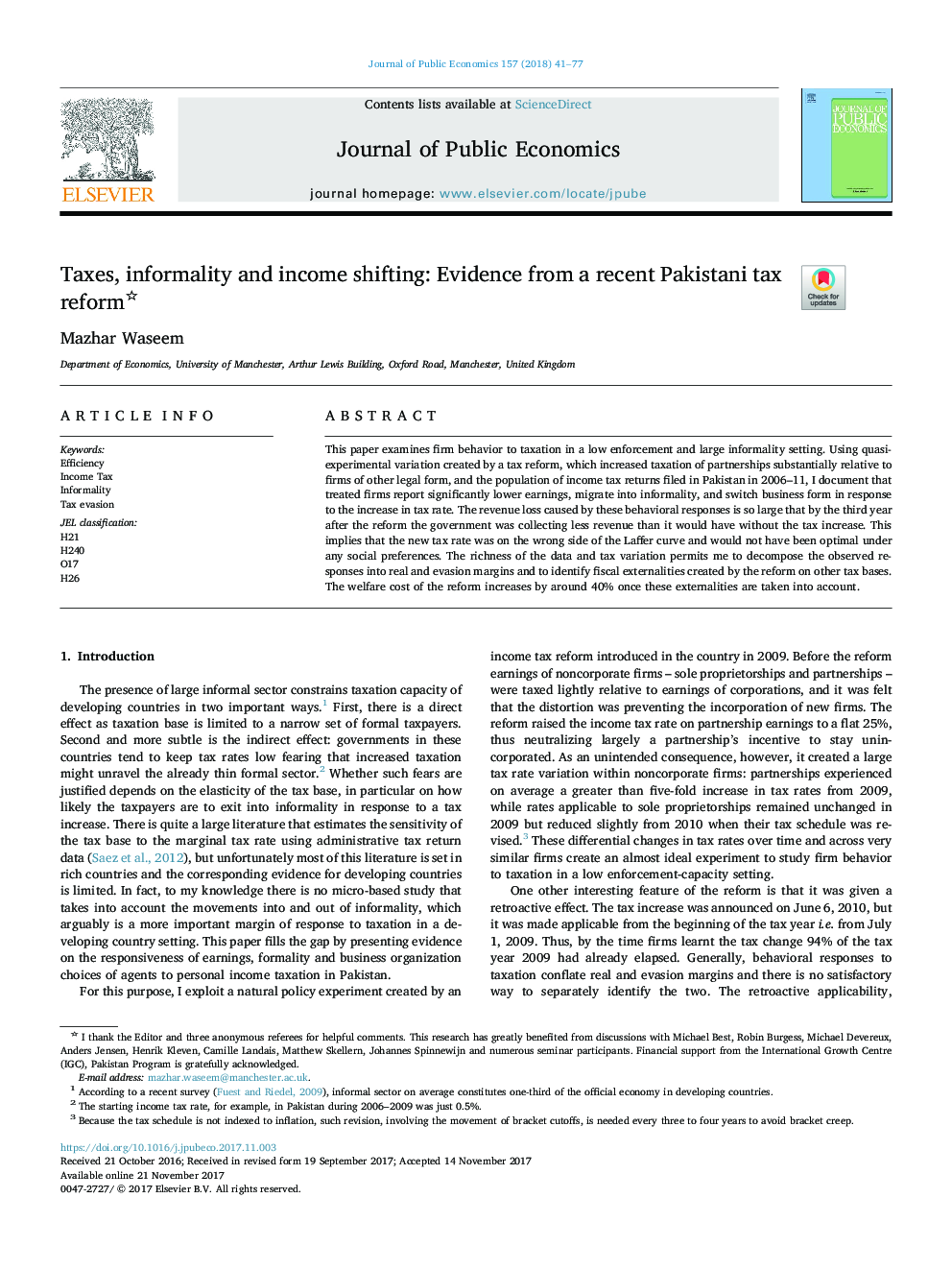| Article ID | Journal | Published Year | Pages | File Type |
|---|---|---|---|---|
| 7369647 | Journal of Public Economics | 2018 | 37 Pages |
Abstract
This paper examines firm behavior to taxation in a low enforcement and large informality setting. Using quasi-experimental variation created by a tax reform, which increased taxation of partnerships substantially relative to firms of other legal form, and the population of income tax returns filed in Pakistan in 2006-11, I document that treated firms report significantly lower earnings, migrate into informality, and switch business form in response to the increase in tax rate. The revenue loss caused by these behavioral responses is so large that by the third year after the reform the government was collecting less revenue than it would have without the tax increase. This implies that the new tax rate was on the wrong side of the Laffer curve and would not have been optimal under any social preferences. The richness of the data and tax variation permits me to decompose the observed responses into real and evasion margins and to identify fiscal externalities created by the reform on other tax bases. The welfare cost of the reform increases by around 40% once these externalities are taken into account.
Related Topics
Social Sciences and Humanities
Economics, Econometrics and Finance
Economics and Econometrics
Authors
Mazhar Waseem,
